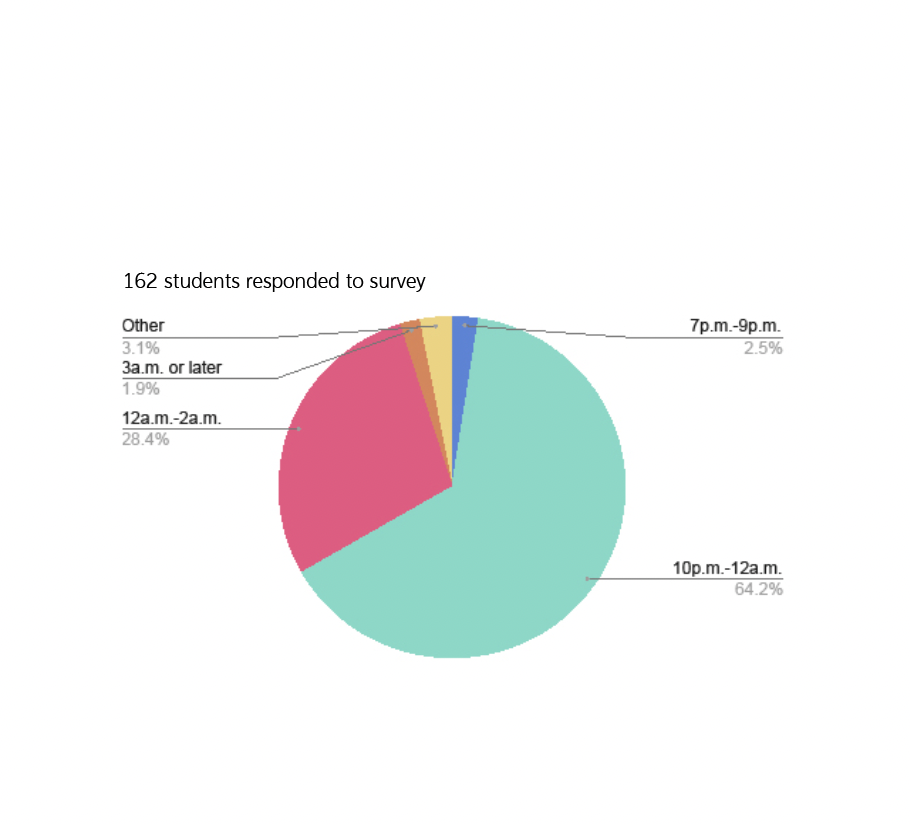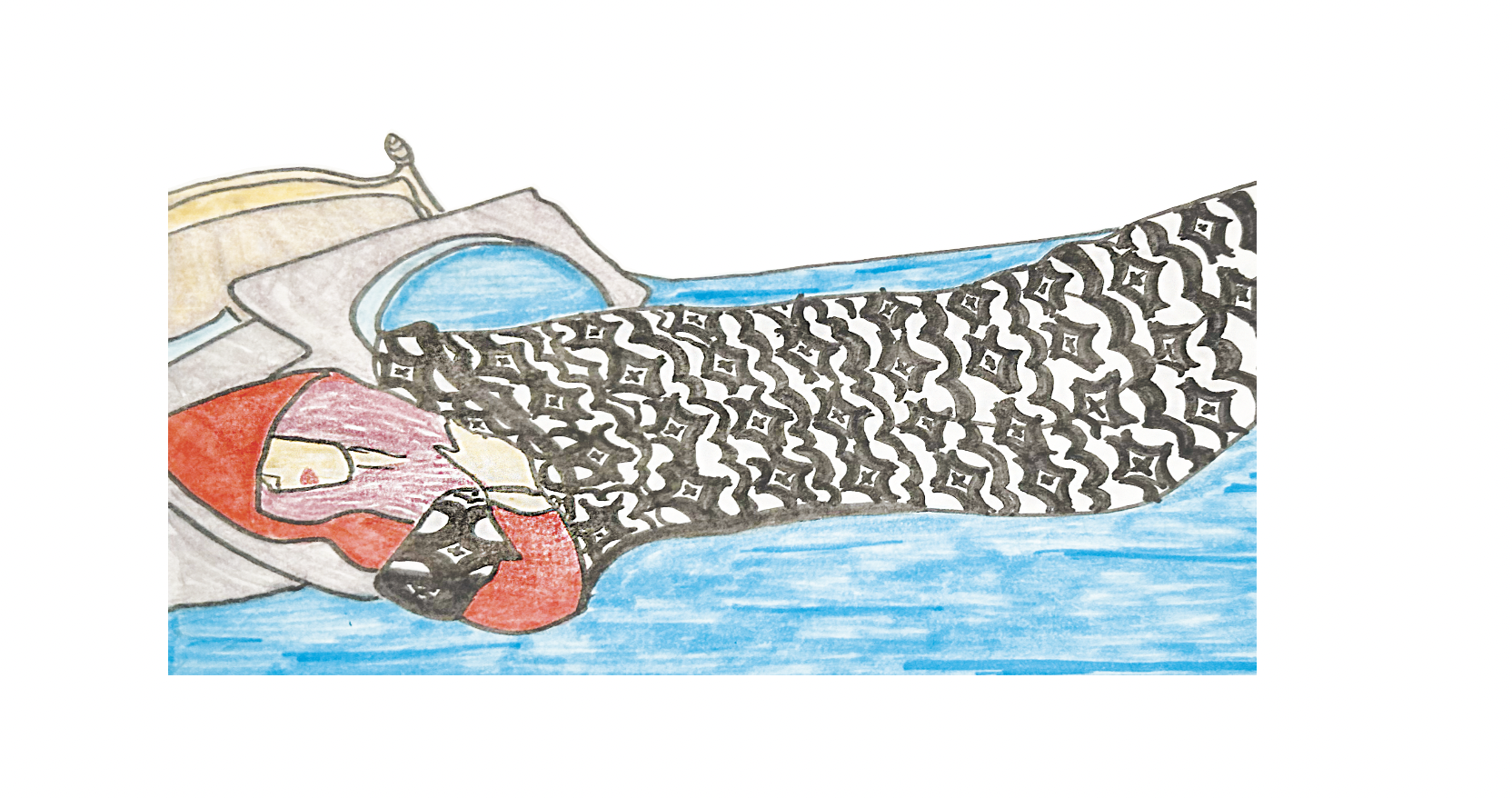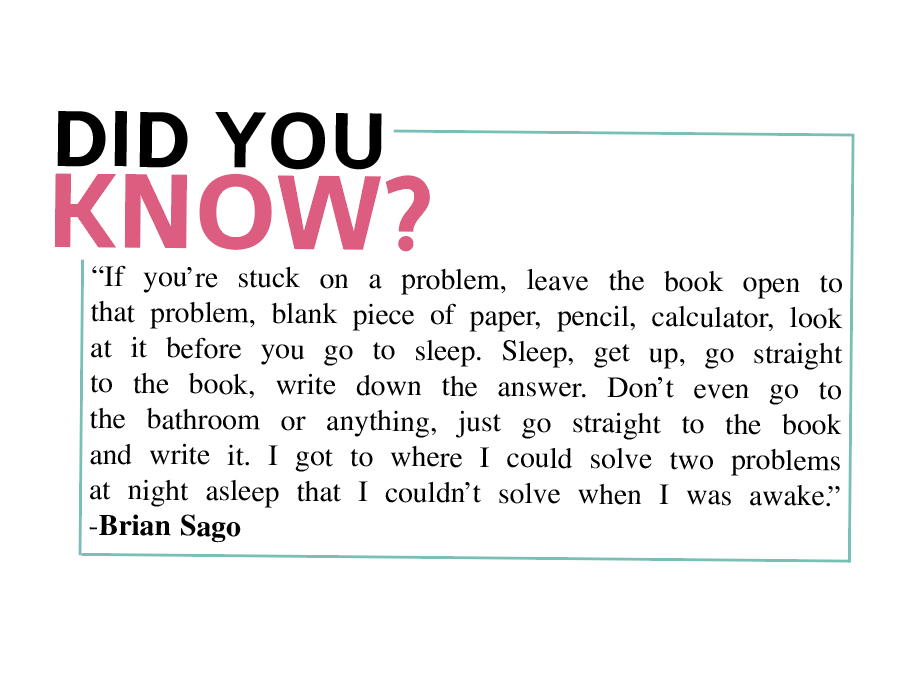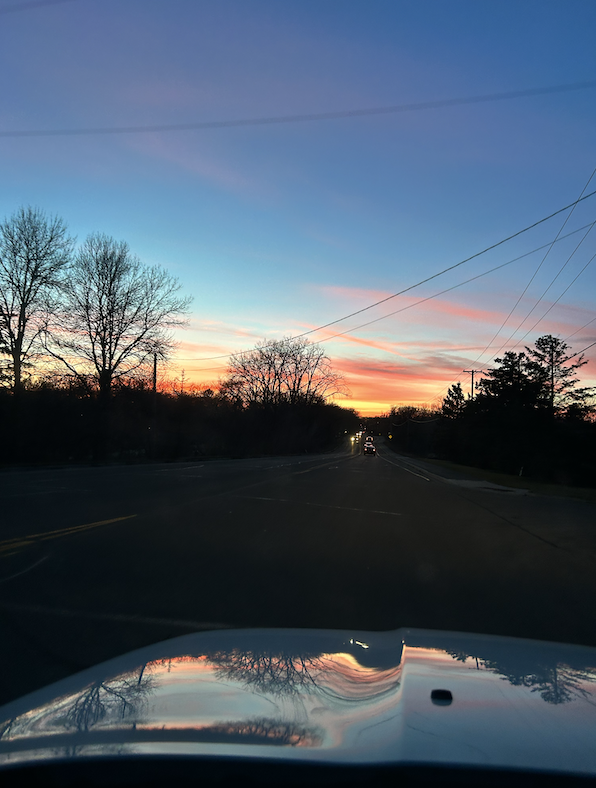The Power of Sleep
Whether this is due to loads of homework or cramming for that one big test, as Blake high school students, we all end up sleep-deprived more often than not. However, excessive loss of sleep for an extended amount of time is extremely unhealthy in a number of ways. Especially for high school students, it is imperative that people are getting a significant amount of sleep in order to function properly and succeed in their everyday lives.
The National Institute of Health (NIH) explains that there are five different stages of sleep: “wake, N1, N2, N3, and REM.” The first state, Wake, is when a person is very quiet and relaxed while they are starting to drowsily shut their eyes. Next, the body moves into its Light Sleep stage, N1. Taking about 5% of a person’s amount of sleep, this stage occurs between one and five minutes. The Deep Sleep stage occurs, N2, for about 45% of the time in which a person sleeps. Both the sleeper’s body temperature and heart rate become lower. The next stage is the Deepest Sleep, N3, taking around 25% and 30 minutes to one hour of someone’s sleep schedule. Normally, this is the stage that is most difficult to wake up from, even not waking up from loud noises. If a person were to wake up during the Deepest Sleep phase, they would have sleep inertia, where a person feels extremely drowsy and foggy. Sleepwalking, and having nightmares also will occur most during this stage. The final stage is called Rem, being connected to dreaming. People’s breathing patterns will start becoming more irregular, and people’s eyes will rapidly move as well. It is much more likely for people to wake up out of the blue during the REM cycle as well.
Sleeping is how your body “recharges” itself. When you sleep, “your body is working to support healthy brain function and maintain your physical health” (NIH). If your body doesn’t get enough time to slow down and recharge, your immune system weakens, making you more prone to sickness. There are also many risks to long-term sleep-loss. The NIH writes that it has been proven that “sleep deficiency has also been linked to depression, suicide, and risk-taking behavior.” It may also cause a decrease in brain function as well as memory loss.
But how does sleep affect you physically? According to Heakthline, “numerous studies have associated short sleep — defined as sleeping fewer than 7 hours per night — with a greater risk of weight gain and a higher body mass index.” This is due to the impact less sleep has on your hormones and motivation to stay active. Sleep deprivation causes problems that can affect you short and long term. Having a sleep schedule that allows you to go to bed and wake up around the same time each day can be very helpful to avoid loss of sleep and leave you feeling well-rested and overall happier.
Sleep is especially important for teens because the body and brain are still developing. With countless hours of school, homework, and extracurricular activities, students need to get enough sleep to keep them focused and academically performing well. It is often recommended that teens in their high school years should be getting about eight to ten hours of sleep each day, which is definitely not the case for many Blake students. Brian Sago, Upper School Visual Arts teacher, explains, “There’s a lot of research that shows that teenagers, essentially, naturally wake up later than adults do and sleep longer than adults do. Our society and systems kind of don’t allow that we have to wake up fairly early; we may have athletics after school and have homework after school, so there’s not probably the correct amount of sleep time built into most of society for teenagers. Think about in the summertime. Often teenagers just get up at noon or whatever or go to bed at one in the morning or something. So naturally, I think teenagers tend to sleep quite a bit more and need it, they don’t always get it though.”
Energy drinks are a very large impact of a messed up sleep schedule. Students believe that even if they don’t get enough sleep, they can drink caffeinated beverages to keep them awake. But in reality, these drinks mess with getting a natural sleep schedule, and provide an excuse out of getting a significant amount of sleep. According to the NIH, people should refrain from drinking caffeine at least six hours before going to bed.
Some people have the ability to naturally wake up in the morning because they have a constant sleep schedule that allows for mornings without abruptly waking up to an alarm. Using an alarm clock every morning hurts the natural sleep cycle, forcing a person to become extremely tired during the day. It is much easier to wake up naturally if you are well rested and have gained enough sleep based on your age. Many studies have shown that constantly waking up at the same time each morning will improve one’s sleep and help a natural cycle form.
People often have debated whether sleeping to certain sounds can assist in falling into a quicker and deeper sleep. Think about it this way: Do you find yourself falling asleep much easier when it is raining outside? Falling asleep to music with words becomes much more difficult, because your brain begins to process what it is hearing, but many studies show that sleeping to white, pink, or brown noise, and sounds from nature are very beneficial to sleep. According to the National Sleep Foundation, it was discovered that white noise helps people fall asleep 38% faster than having a soundless night. Also, if the environment is very loud around the location where you are sleeping, these sounds can cover up the disturbances. The peaceful sounds will lead to a more restful and deep sleep, calming down the brain and the other stress that occurs.
Magnesium:
Social media users recently popularized magnesium as another form of helping sleep, and fortunately, increasing intake is not exactly another internet fad. Magnesium, according to Oxford Academic, has deep correlations with the betterment of sleep by not only lowering cortisol, but also helping melatonin levels improve. Further research on confirming correlations is still occurring. On TikTok, users have created a sleep mocktail, which consists of pure tart cherry juice, magnesium powder, and prebiotic soda/sparkling water. Many users have found this concoction to be beneficial, whereas some have felt no difference. Try this out — you never know what may help!
Sleep Apps
Reminders have been a great help, and serve to help create goals around sleeping by recognizing continual and general habits. Apps like Sleep Cycle, SleepScore, and Sleepzy are popular and highly recommended by users. These apps serve to track the amount of time sleeping, calculate the quality of sleep, pick up sounds (like snoring) during sleep, and even provide beneficial sounds and guides to help lull you to sleep. Such apps track behaviors over time, giving you the ability to recognize continual behaviors so you can address them. I can also attest to these apps—they 100% keep you accountable!
Coolness Factor:
Personally, nothing gets me sleepier than a cold room and a toasty, cozy bed. After a long day, curling up in a nice bed in a cold environment is the best way to end the day, and promising research proves that cool environments could be beneficial to sleep. According to the National Library of Medicine, a room temperature of 60-67 degrees Fahrenheit is optimal for regulating your body’s internal temperature, which, in turn, will help you initially fall asleep.
Maintain a Schedule:
While waking up at the same time every morning (including the weekends) may sound daunting, maintaining a somewhat routine schedule will drastically benefit your circadian rhythm. If you continually follow sleep patterns, your body will naturally fall asleep and awake. Maintaining a schedule has proven to not only benefit sleep but also help regulate your metabolism and internal temperature.
Before Bedtime Rituals:
If you suffer from an overly active mind before bed, this is for you. Firstly, limit the use of screens before bed, as blue light lowers melatonin levels. Doomscrolling especially tends to increase the mind’s hyperactivity. Secondly, a lot of thinking before bed can stem from feeling as if things are unfinished, unplanned, or unsaid. Making a to-do list has become an essential bedtime ritual for me, as planning my day tomorrow relieves stress. Additionally, journaling has proven to also be a benefit for so many others. If you’re interested in journaling, it may be beneficial to attend Blake’s very own Journaling Club for some tips!
Using Electronics Before Bed:
These devices give out blue light through their screens, which suppresses melatonin production, leading to troubled sleep.
Energy Drinks Close to Bedtime:
Although drink flavors from Celsius and Red Bull taste delicious, their high levels of caffeine can ruin one’s sleep schedule, making it more difficult to fall asleep.
Poor Sleep Environment:
A room that is too hot can result in an uncomfortable sleep experience. The heat signifies that the body is unable to achieve an optimal temperature. It is necessary to find a heat that will allow you to relax and be guided to sleep.
Taking Naps Right Before Bed:
This will mess up your sleep schedule, and make it much harder to fall asleep during the night. The body naturally craves sleep at night, and taking naps earlier in the day messes up the body’s ability to fall asleep at the right hour.
Eating Prior to Bed:
This will disrupt your sleep because it affects your digestion. It also gives you a higher potential for heartburn and other digestive problems. Eating right before bed will also cause a lot of weight gain because you are unable to burn off these calories.

“Sleep is for the weak,” is a phrase commonly spoken among kids and teenagers. But, when do you feel like you can ace your science test or win that big hockey game? After getting a large amount of sleep. Sleep is so important for teenagers especially, however, there is often a big debate about who is more productive — those who go to bed early and wake up early, or those who go to bed late and sleep in, night owls. This preference often stems from the students who want to do their homework late at night, versus early in the morning.
Generally, studies done by CNN have shown that night owls “may be twice as likely as early risers to underperform.” Even though this is more broadly believed, CNN says that some believe night owls are more successful in life because they make use of hours that the general population is more likely to use as well. As teenagers grow older and eventually become adults, they tend to start going to sleep and waking up earlier.
The Sleep Foundation believes that teens need eight to ten hours of sleep each night, which is difficult during the school week with long hours of school, homework, and extracurriculars. For night owls like Stella Wyatt ‘27, it’s often due to long sports practices after school, along with homework and other activities. “I usually go to bed around 10 p.m. or 11 p.m. I wake up around 7 p.m.,” Wyatt said. She believes that most teens, specifically students at Blake, are mostly “night owls, and then they are kind of forced to be morning birds by coming to school.” Spencer Schmidt ‘27 agrees with Wyatt, saying that she “would guess that [Blake students] are more night owls.” Schmidt considers herself to be a morning person due to the early morning carpools to school. “I wake up at 6:50, and I go to bed at 9:30.”
Responses from Sleep Survey:
“I finish my homework, and then I read a book.”
“Scroll TikTok, or read a book. When I read a book I tend to sleep better.”
“I play the NYT games like the Wordle and Connections.”
“Journal, social media, or watch a show/movie.”
“Text friends, scroll on social media, or play games on my phone.”
“I look at my phone sometimes, even though I know it’s bad for me.”
“Brushing my teeth and changing, listening to music, putting on white noise.”
“I go on my phone for like 45 minutes, just scrolling or listening to music.”











